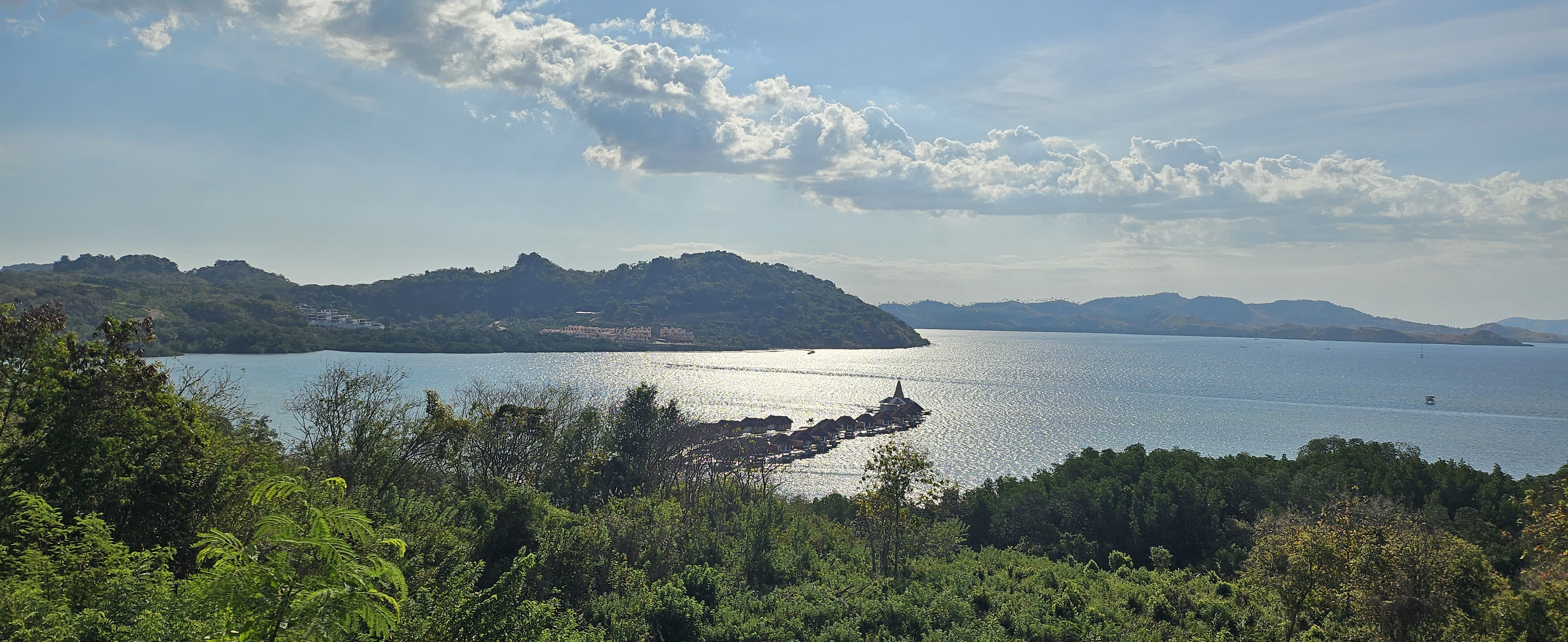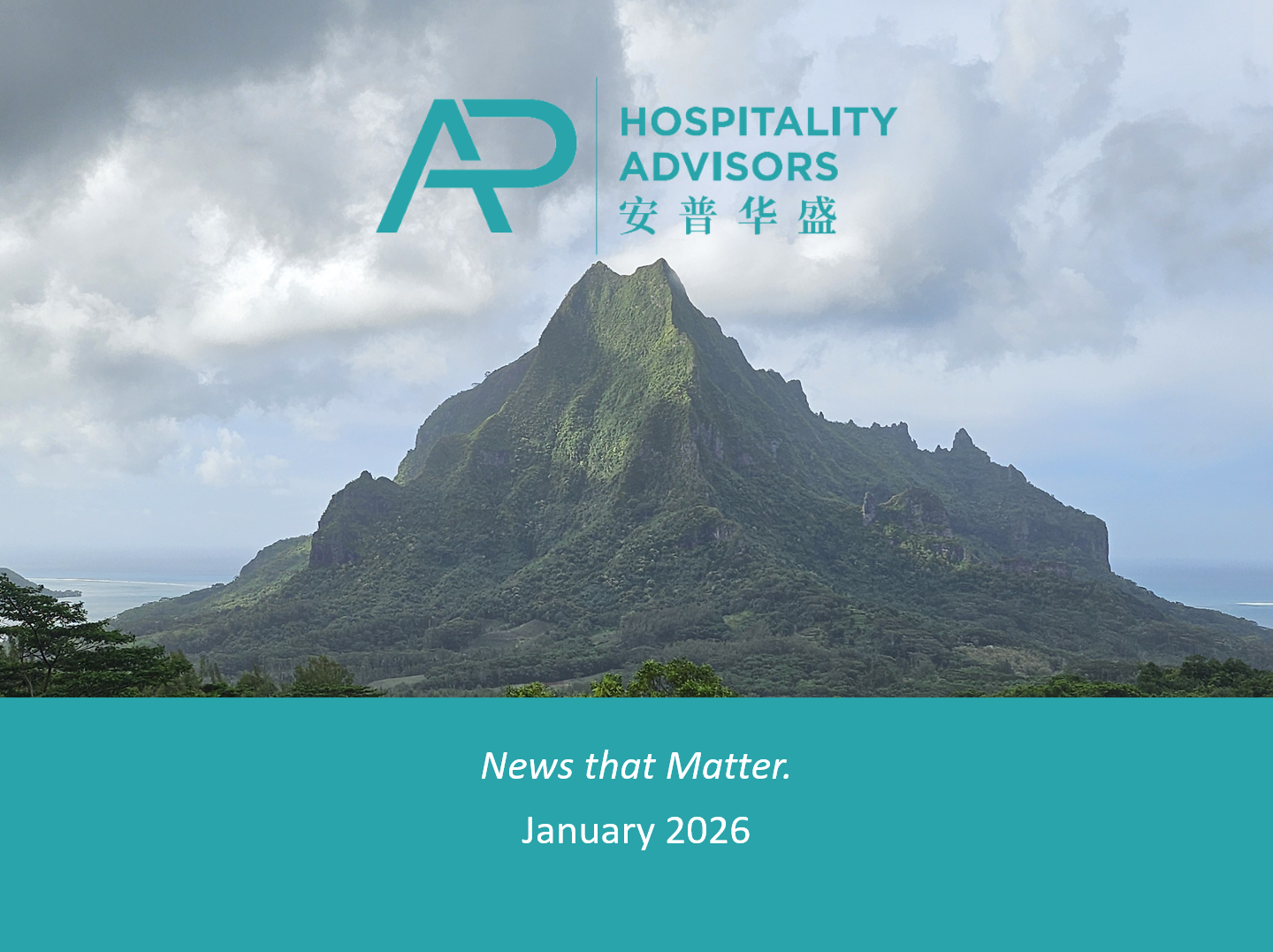AP COVID Hospitality Bulletin Asia Pacific - April 2021

On 6 April, WHO spokeswoman Margaret Harris said: "We as WHO are saying at this stage we would not like to see the vaccination passport as a requirement for entry or exit because we are not certain at this stage that the vaccine prevents transmission."
On 1 April, Google cancelled April Fools Day again this year.
No jokes, COVID is still here a year later.
- The WHO is still verifying the effectiveness of various vaccines.
- There are now more lockdown measures in place across Asia Pacific: spotlights on Japan and the Philippines
- The vaccine rollout in Hong Kong was temporarily suspended due to packaging defects, and
- Flights were cancelled between Hong Kong and Singapore due to a spike in cases.
The good news is that
- People seemed to be more hopeful as the Easter Holidays came around.
- Countries and governments are eager to push for travel bubbles and digital vaccine passports.
- Taiwan launched the first Asia travel bubble to and from Palau on April 1.
- New Zealand and Australia are set to follow suit on April 19.
- Citizens are rushing to be fully vaccinated, hoping to hop on the next flight as soon as it permits.
- The first quarter of 2021 has flown by rather quickly and as we stay hopeful for herd immunity in the coming quarters, let's keep our fingers crossed until travel resumes.
Vaccination Leaderboard
Below shows the countries by total vaccinations performed and by people fully vaccinated per 100 people in the total population.
1. United States: 169M (18.84%)
2. China: 146M (10.14%)
3. India: 87.1M (0.81%)
4. United Kingdom: 37.1M (8.1%)
5. Brazil: 22.9M (2.38%)
...
36. Singapore: 1.52M (8.0%)
37. Japan: 1.29M (0.23%)
40. South Korea: 1.07M (0.07%)
...
52. The Philippines: 855K (0.03%)
53. Australia: 855K
54. Malaysia: 830K (0.95%)
56. Hong Kong: 616K (1.51%)
71. Thailand: 324K (0.07%)
110. Macau: 57.3K
Source: covid_vaccinebot, as of 8 April
Updates on key countries:
Australia
- Australia reported a drop-off in new local cases of in Queensland on Wednesday on 31 March, which has led to a three-day lockdown in state capital Brisbane that was thankfully lifted ahead of the Easter holidays on 1 March. More than two million residents of Australia's third-largest city were asked to stay home until Thursday evening as authorities rushed to contain two distinct virus zones.
- As per the current travel restrictions, there is a ban on overseas travel from Australia. Citizens and permanent residents are not permitted to leave Australia unless they have an exemption from the Department of Home Affairs or are travelling to a destination that is exempt from the ban.
- The new travel guidelines on behalf of the New Zealand government now allows quarantine-free travel for Australians from April 19. This turns attention to other potential countries that could be next on the list for future COVID travel corridors, such as Singapore.
Thailand
- On 3 April, the first flight of 130 travelers eligible for the shorter quarantine period of seven days arrived at Phuket International Airport, via a Thai Airways direct flight from Frankfurt, Germany. A seven-day quarantine has been approved for travelers from non-high-risk countries, who have been fully vaccinated with vaccines approved by the WHO or FDA, or authorized by the Thai Public Health Ministry, at least 14 days prior to departure.
- Come July, Phuket is expected to be the first province to waive the quarantine requirement for foreign visitors who have been vaccinated. One of the criteria for the planned reopening is inoculation of a minimum 70% of the island’s population.
- In stage three of borders reopening from October to December, five other major tourist destinations including Krabi, Phang Nga, Surat Thani (Koh Samui), Chonburi (Pattaya) and Chiang Mai will join Phuket in lifting quarantine requirements for vaccinated foreign tourists.
Singapore
- Singapore Airlines (SIA) plans to integrate a digital health verification process into its mobile app from the middle of the year, after a recent successful trial of IATA's travel pass for COVID-19 test results and vaccine certificates was well-received by passengers. SIA tested the IATA app on passengers traveling from Singapore to London between 15 and 28 March.
- IATA, a global body representing about 290 airlines, will launch the travel pass by mid-April with more than 20 airlines, including Qatar Airways, Malaysia Airlines, Qantas and Korean Air who are also simultaneously testing on passengers. Under the IATA Travel Pass framework, more routes are currently under review so that the IATA travel pass app can be more widely implemented on.
- In March, Singapore and Malaysia reaffirmed their commitment to work towards recognizing each other's vaccine certificates, in joint efforts to facilitate cross-border travel. As a result, the Johor state government of Malaysia has launched a special vaccination app for Malaysians who commute to Singapore as of 4 April in easing cross-border travel restrictions.
Indonesia
- The government is aiming to vaccinate nearly two million people in Bali by April, and another one million people by May, with hopes of achieving herd immunity in July.
- With the hope to see the reopening of international borders by June or July, Bali has selected three green zones, namely Ubud, Sanur, and Nusa Dua, to receive international tourists from countries that have committed travel corridor agreements with Indonesia. The travel corridor uses a point-to-point concept that ideally link Bali to certain countries. Foreign tourist visits will be organized by travel companies so that visitors activities within the green zones will be closely monitored in case of any outbreaks.
Transactions that matter.
1. Grand Hyatt Fukuoka & ANA Crowne Plaza Hotel Fukuoka, Japan
- Horshino Resorts REIT is acquiring the Grand Hyatt Fukuoka and other components of the Grand Building equating to 88.3% of shared equity. The Grand Hyatt Fukuoka and has been operating since 1996.
- The buyer believes that Fukuoka is an up and coming gateway to the Kyushu area for visitors from the rest of Japan and overseas including Asia. Due to the limited supply of luxury hotel brands in Fukuoka, the Grand Hyatt will help diversify the portfolio. Hoshino Resorts Group plans to participate in the management of the hotel as a lessee of Grand Hyatt Fukuoka.
- The 320-room ANA Crowne Plaza Fukuoka will be transferred to Fukuoka Jisho Co., Ltd, which is the sponsor of Fukuoka REIT Corporation at the sale price of JPY7,700 million (USD82mil, USD353,000 per key).
- Fukuoka Jisho and Hoshino Resorts have announced collaborative plans to further develop and increase the sustainable value of Canal City Hakata overall to Japanese and foreigners.
2. Conrad Tokyo, Japan
- Located on the top 10 floors of the Tokyo Shiodome Building, Conrad Toyko features 290 luxurious rooms with expansive views of the city skyline since the hotel opened in 2005.
- The Conrad Tokyo is part of a transfer transaction between Mori Trust Sogo REIT and Mori Trust Asset Management for a partial sale of the asset. The total co-ownership interest of 12.5% will result in a profit of approximately JPY2.8 billion (USD26mil) in total.
3. Kinetsu Group Kinki-Tokai & Fukuoka Hotels, Japan
- Kintetsu Group has agreed to sell an eight-hotel portfolio in Japan to Blackstone Real Estate’s funds at the value of JPY60 billion (USD550mil or USD240,000 per key). This portfolio of Kintetsu’s hotels is located in the top-visited tourist destinations in Japan including Kyoto, Osaka, and Fukuoka, as well as in the Greater Osaka and Nagoya regions.
- Blackstone Real Estate will acquire three hotels in prime locations including Miyako Kyoto Hachijo across Kyoto station, Universal City that is adjacent to Universal Studios Japan, and the newly built Miyako Hakata next to Hakata station. The sale also includes three upscale hotels and two resort hotels that are located within the Greater Osaka and Nagoya regions.









